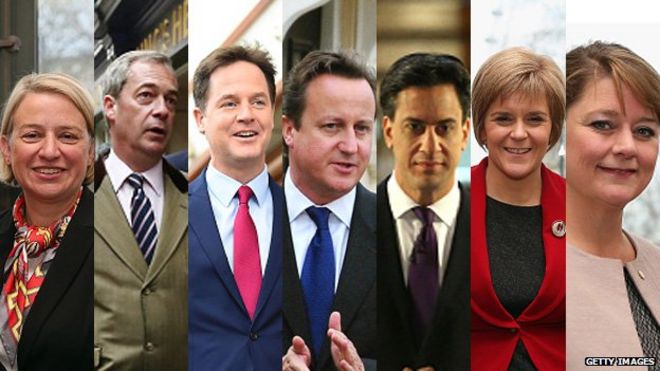Deviation Actions
At the time of writing, a great many thoughts are drawn to a forthcoming competition. Though some might certainly muse on a particular boxing match, other reflections are compelled towards the impending British general election on May the 7th, 2015. Coming at the close of a remarkable, and quite unique campaigning season, the stage seems quite thoroughly set for a multi-dimensional and potently charged political race to the finish. The United Kingdom practicing a majoritarian, first-past-the-post system as opposed to other countries, such as the presidential elections of the U.S.A, the complexion of the future Westminster parliament (Britain's central legislature) has become a deeply contentious debate - one spliced with great controversy and sometimes very ill regard as the months have passed by.
Considering this, I have taken to reflecting more holistically on the procession of events and have had the opportunity to contemplate some very timely theater on the subject of British elections, the dynamics of the parties and the internecine writhing which can lose or win an election for some...
One of the principle elements of politics - perhaps always - is the extent to which principle itself determines action, as contrasted with the pull and temptation of joining a wider consensus, or at least what can be perceived as such. The crux of a dilemma within the progressive, social democratic tradition of European and American politics for decades, this issue - itself pregnant with an existential challenge - was explored with potent candor in the British political drama of 1993, "The Absence of War", by David Hare, which I happened to see an new rendition of in early April of this year.
A taste of the play's ambiance and vision can be found below, in its official trailer for 2015.
The play's vision considered prescient in speaking to not simply a political culture of media control, spin and contrived, consumer friendly image, it remains a potent indictment of the issues which have plagued the institution of British progressives, and Labour, for decades: press for a principled, orthodox vision of their political mission as compared to a new, right wing consensus which abandons the essence of social democracy in favor of electoral success. This argument more complex than the ostensible and time honored tugging between right and left, time has afforded the play an almost prophetic quality in that such questions still nibble at a Labour Party now at home with right wing narratives and a market society, but also in a cold indictment of a wider social narrative. As the ill fated Labour leader, George Jones, remarks in a moment of impassioned indignation, it has become the nature of his party to indulge and pamper sensibilities which have been seen to become the norm - and not challenge them with traditional, edifying aspiration, if he wishes to be elected.

George Jones
Bounced between the political culture of early 1990's Britain and the institution of Labour's historic mission, we find a somewhat embattled and tragic figure: genuine and compelling, though ultimately a victim of not only the culture he wishes to better, but also his party and his own sense of history - a matrix which seems to lead him and his followers to their ultimate defeat.
Not overly well received when first debuted in 1993, the gripping intelligence and prescience of this dramatic work have since been proven fundamentally correct in their vision of a Britain comfortable in its conceit, a consumerist political culture of spin and the dissolution of a once vigorous, edifying movement into a business, not unlike their rivals. In the years since that first debut, the work's intellectual and ideological proposition have been found to have great traction in their subject - and especially in what Labour's ultimate mission is: that existential question which has so jabbed at the party for decades into the present day.

British Political Party Leaders, 2015
In all, the play's powerful, potent indictments reflect something more singular: framed by the period of the early 1990's when the story was conceived, though given a more universal traction by the play's conclusion as a man - and his party - struggle to realize what their principles ultimately are, and how they could be worked in a world increasingly removed from their ideological provision: if this struggle is worth while or if some other form of recourse will be the movement's saving grace. An issue some in the American Democratic Party will be familiar with during that era, the British Labour Party shared this contention; though it remains that the later expeditions of "New Labour" under Tony Blair and Gordon Brown did not resolve, but only compound this sense of incongruence.
Justice, equality and prosperity remaining paramount to the vision of western democracy, it remains a cold, hard indictment of an age where growing extremes are met by increasingly vacuous, confined and ideologically deficient movements in some political traditions - a state which "The Absence of War" shines painful light upon: not simply upon one party or leader, but upon the very meaning of politics and what it means to elect our governments as the elective tradition grows ever more complex.
In turn, as the clock ticks towards the 7th of May, it remains a intriguing mystery as to what, who and how the House of Commons (Britain's principal legislative chamber) will assemble in the following days...

Westminster - The House of Commons
Mercury-Pentacle.